Typists play a key role in ensuring accurate and efficient documentation. They are responsible for transcribing information quickly and accurately, often from audio recordings or handwritten notes, into digital formats. This role is essential in various industries, including legal, medical, and administrative sectors.
Skills required for a typist include fast and accurate typing, excellent grammar and spelling, and attention to detail. Additionally, proficiency in word processing software and the ability to manage time effectively are crucial for success in this role.
Candidates can write these abilities in their resumes, but you can’t verify them without on-the-job Typist skill tests.
In this post, we will explore 7 essential Typist skills, 10 secondary skills and how to assess them so you can make informed hiring decisions.
Table of contents
7 fundamental Typist skills and traits
The best skills for Typists include Typing Speed, Accuracy, Attention to Detail, Proficiency in Word Processing Software, Time Management, Grammar and Punctuation and Basic Computer Skills.
Let’s dive into the details by examining the 7 essential skills of a Typist.
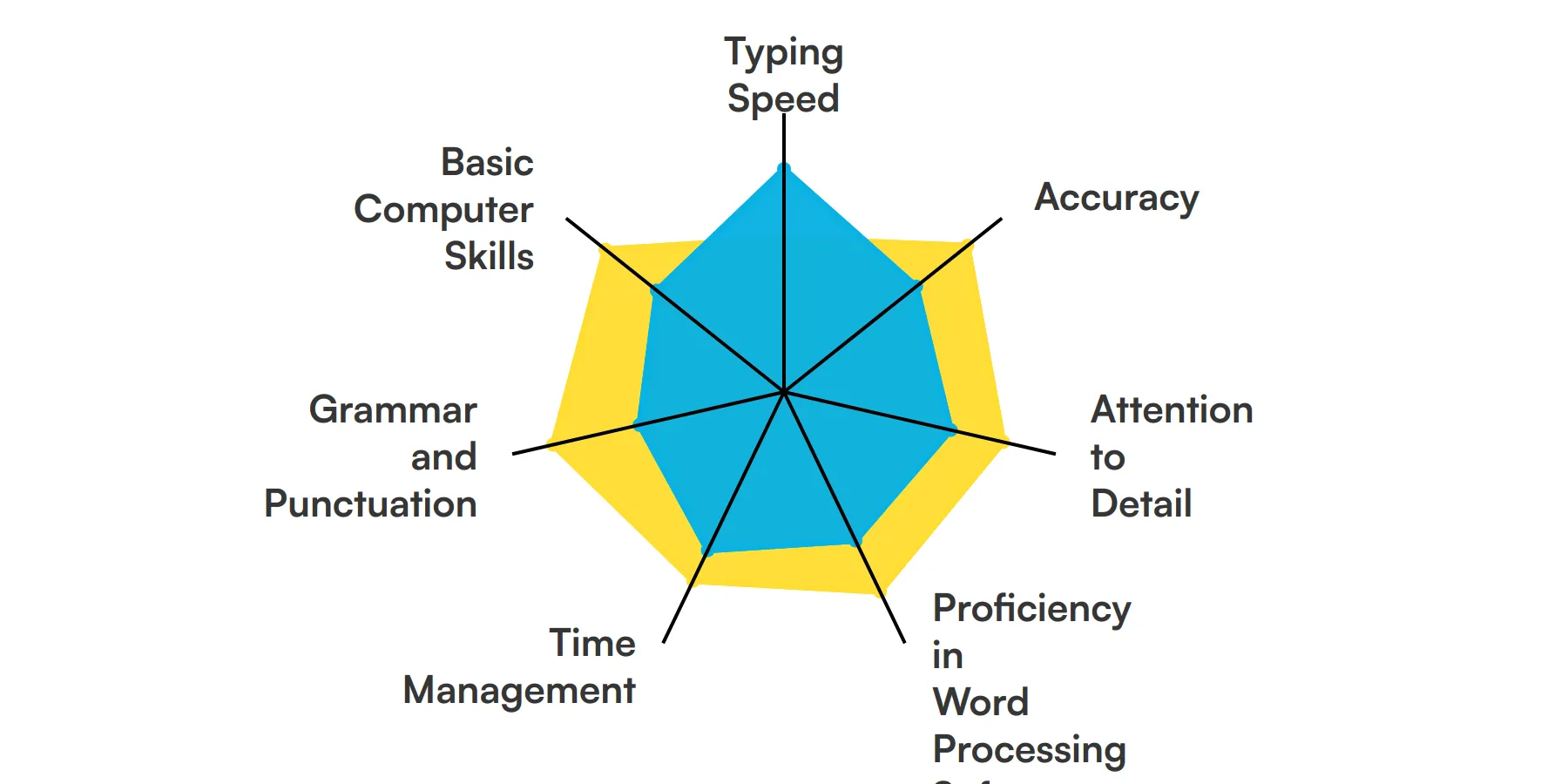
Typing Speed
A typist must be able to type quickly to meet deadlines and handle large volumes of work. High typing speed ensures that tasks are completed in a timely manner, which is crucial for maintaining productivity.
For more insights, check out our guide to writing a Typist Job Description.
Accuracy
Accuracy is paramount for a typist to avoid errors in documents. This skill ensures that the information being typed is correct, which is essential for maintaining the integrity of the work.
Attention to Detail
A keen eye for detail helps a typist catch mistakes and inconsistencies in the text. This skill is important for producing polished and professional documents.
Check out our guide for a comprehensive list of interview questions.
Proficiency in Word Processing Software
Knowledge of word processing software like Microsoft Word or Google Docs is necessary for formatting and editing documents. This skill allows a typist to efficiently create and modify text.
Time Management
Effective time management helps a typist prioritize tasks and meet deadlines. This skill is crucial for handling multiple assignments and ensuring timely completion of work.
Grammar and Punctuation
A strong grasp of grammar and punctuation rules is essential for producing clear and readable text. This skill ensures that the documents are free from grammatical errors and are easy to understand.
Basic Computer Skills
Basic computer skills, including file management and internet navigation, are necessary for a typist to perform their job efficiently. These skills help in accessing resources and managing digital documents.
10 secondary Typist skills and traits
The best skills for Typists include Data Entry, Transcription, Editing and Proofreading, Multitasking, Research Skills, Communication Skills, Organizational Skills, Adaptability, Confidentiality and Customer Service.
Let’s dive into the details by examining the 10 secondary skills of a Typist.
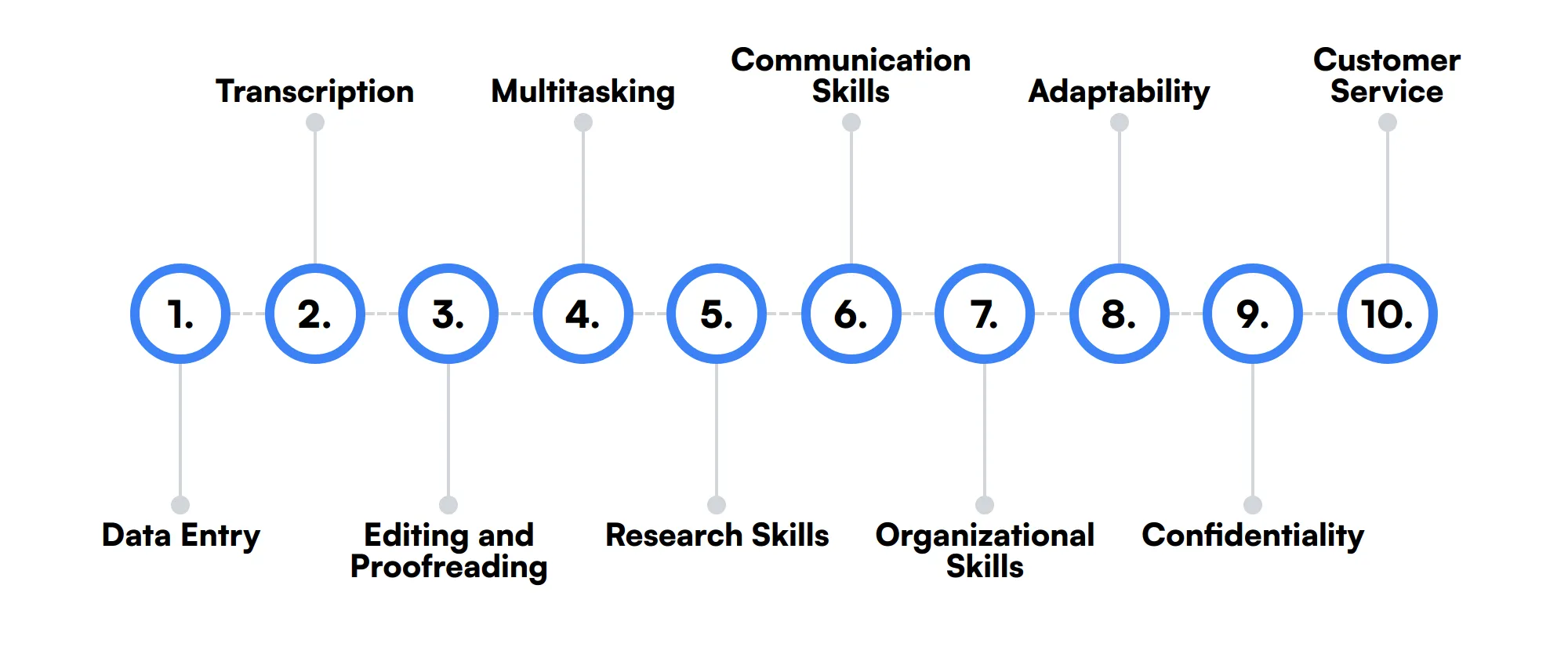
Data Entry
Data entry skills are useful for a typist when inputting information into databases or spreadsheets. This skill helps in maintaining organized and accurate records.
Transcription
Transcription involves converting audio recordings into written text. This skill is valuable for typists who work in fields like medical or legal transcription.
Editing and Proofreading
Editing and proofreading skills help a typist refine and improve the quality of documents. This includes correcting errors and enhancing the overall readability of the text.
Multitasking
The ability to multitask allows a typist to handle several tasks simultaneously. This skill is beneficial for managing workload and increasing productivity.
Research Skills
Research skills enable a typist to find and verify information quickly. This is particularly useful when working on documents that require accurate and up-to-date data.
Communication Skills
Good communication skills help a typist understand instructions clearly and collaborate effectively with colleagues. This skill is important for ensuring that the work meets the required standards.
Organizational Skills
Organizational skills help a typist keep track of documents and manage their workspace efficiently. This skill is important for maintaining order and ensuring that tasks are completed systematically.
Adaptability
Adaptability allows a typist to adjust to new tools, software, and work environments. This skill is important for staying current with technological advancements and changing job requirements.
Confidentiality
Maintaining confidentiality is crucial for a typist, especially when handling sensitive information. This skill ensures that private data is protected and not disclosed inappropriately.
Customer Service
Customer service skills are beneficial for typists who interact with clients. This skill helps in addressing client needs and ensuring satisfaction with the services provided.
How to assess Typist skills and traits
Assessing the skills and traits of typists is more than just checking how fast they can type. It involves a comprehensive evaluation of several key abilities that determine their efficiency and effectiveness in real-world tasks.
To accurately gauge a typist's capabilities, it's essential to consider their typing speed, accuracy, attention to detail, and proficiency in word processing software, among other skills.
While traditional methods like resume screening and interviews provide some insights, they often fall short in measuring the practical skills of typists. This is where skills assessments come into play. By using targeted tests, employers can get a clear picture of a candidate's actual proficiency in typing and related tasks.
Adaface assessments offer a streamlined approach to evaluate these skills effectively. With tests designed to measure not just the speed but also the accuracy and software proficiency, Adaface helps organizations identify the best candidates for their typing needs. By incorporating these assessments, companies have reported an 85% reduction in screening time. For more information on how Adaface can enhance your hiring process, visit Adaface Typist Skill Tests.
Let’s look at how to assess Typist skills with these 4 talent assessments.
Typing Online Test
The Typing Online Test measures a candidate's typing skills, including speed and accuracy, essential for roles requiring frequent typing.
This test evaluates typing proficiency, proofreading capabilities, and formatting skills, focusing on both speed and accuracy to ensure thoroughness in document handling.
Candidates who perform well on this test demonstrate high levels of efficiency in managing written communications and maintaining document quality.
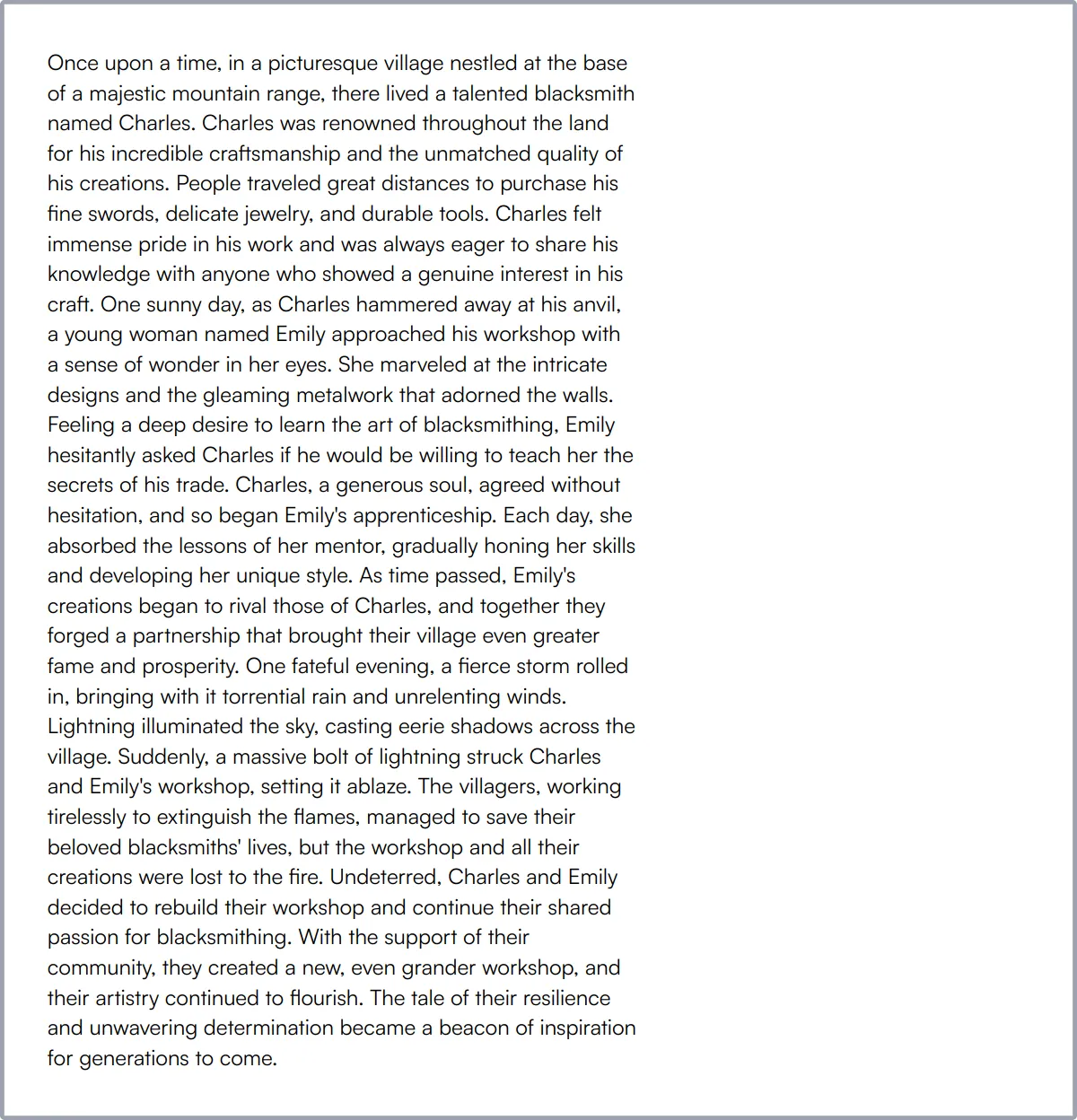
Attention To Detail Test
The Attention To Detail Test assesses a candidate's ability to meticulously follow instructions and verify data, crucial for detail-oriented tasks.
Candidates are tested on their skills in proofreading, identifying mistakes, and detecting typos, ensuring they can maintain high standards of accuracy.
High scorers on this test are likely to be very thorough, ensuring that all information is consistent and free from errors.
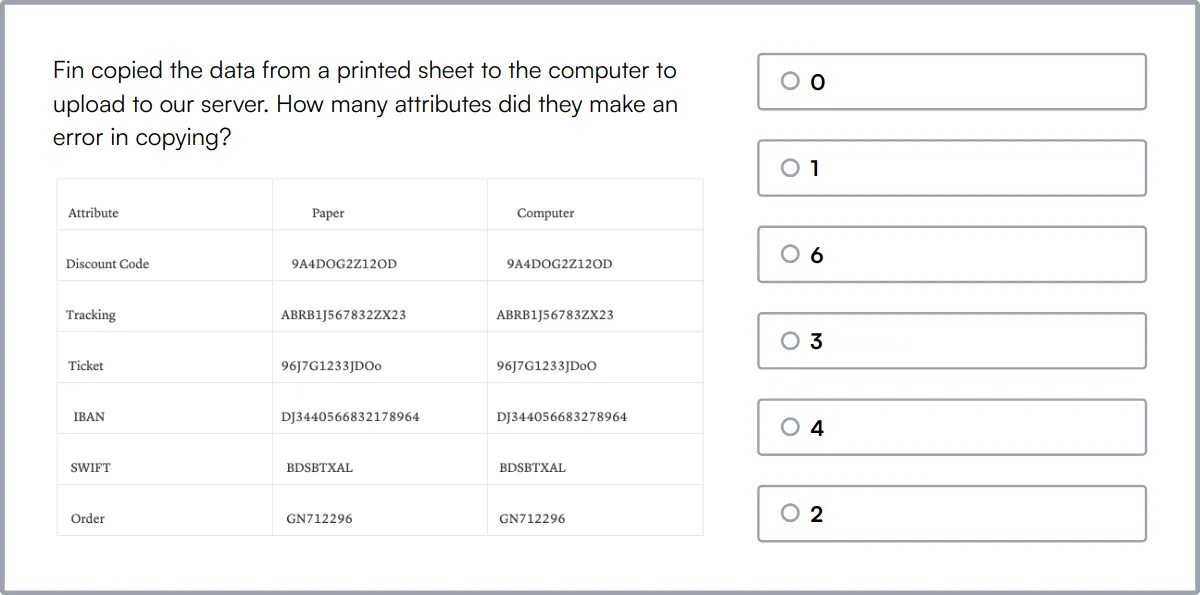
Basic Computer Skills Test
The Basic Computer Skills Test evaluates fundamental computer knowledge, including data entry and system administration.
This test covers a range of skills from typing to Excel and system administration, assessing a candidate's ability to handle typical computer operations.
Successful candidates will demonstrate a solid understanding of basic computer operations and the ability to manage data effectively across different platforms.
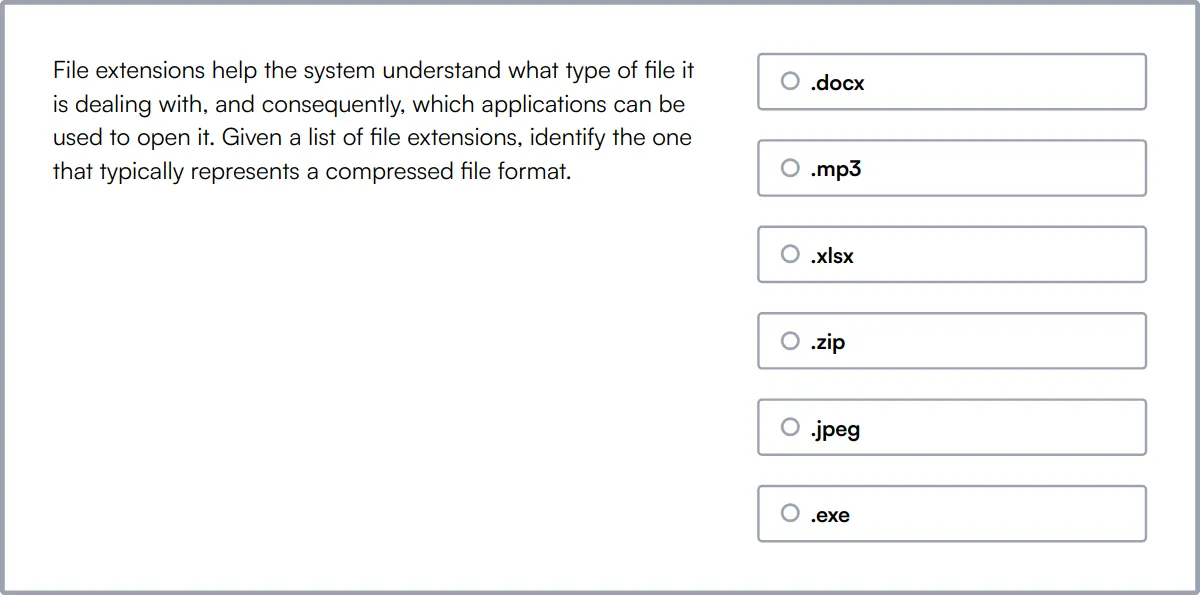
Pre-employment English Online Test
The Pre-employment English Online Test gauges advanced English language skills, focusing on business communication.
It assesses a wide range of English skills including grammar, vocabulary, reading comprehension, and writing, tailored for a professional setting.
Candidates excelling in this test are well-equipped to handle complex business communications and can effectively articulate and interpret professional documents.
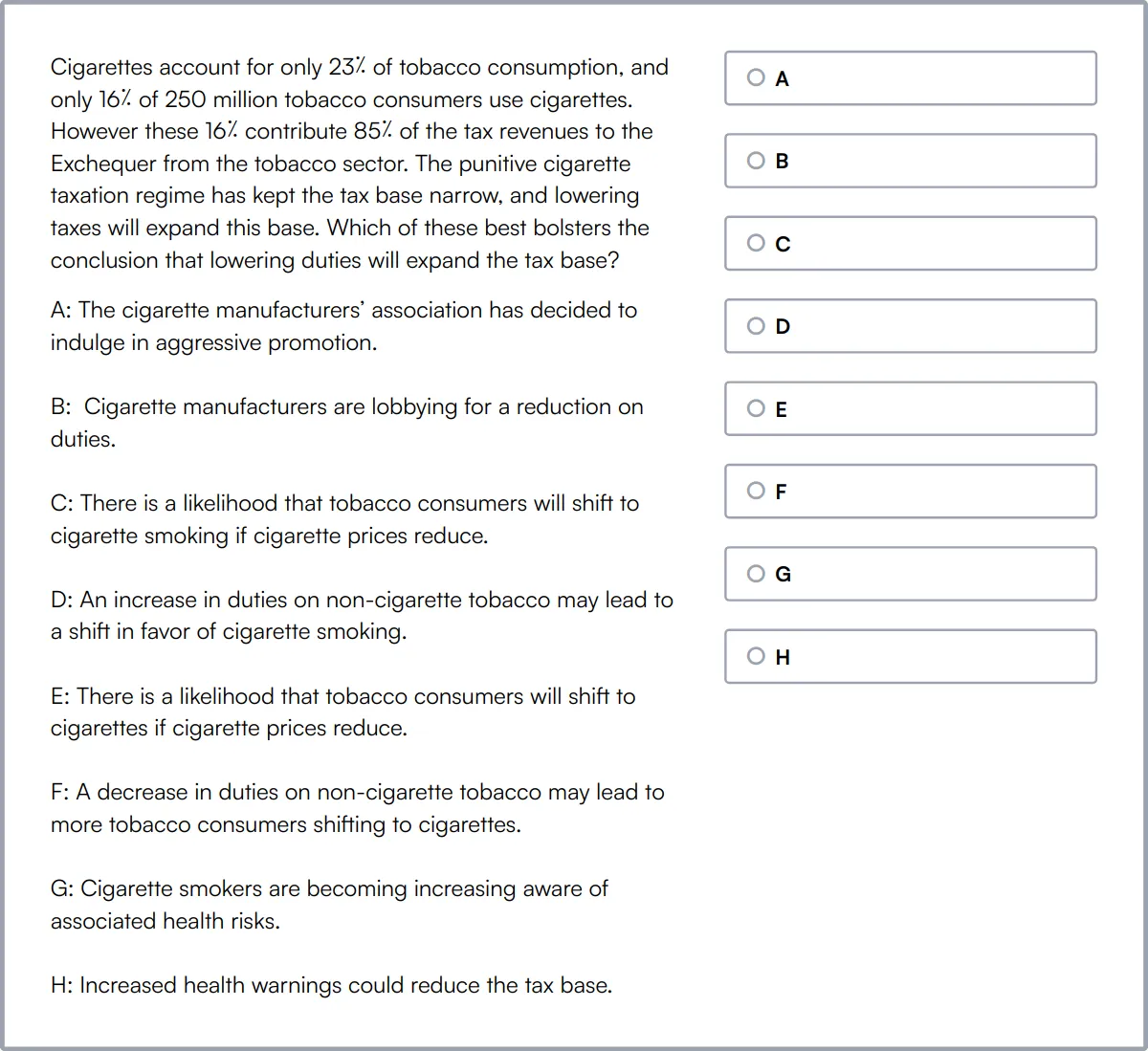
Summary: The 7 key Typist skills and how to test for them
| Typist skill | How to assess them |
|---|---|
| 1. Typing Speed | Evaluate through typing tests measuring words per minute. |
| 2. Accuracy | Assess by checking error rates in typed documents. |
| 3. Attention to Detail | Observe accuracy in handling complex data or instructions. |
| 4. Proficiency in Word Processing Software | Test ability to use features and tools in software efficiently. |
| 5. Time Management | Review completion of tasks within deadlines. |
| 6. Grammar and Punctuation | Test knowledge and application in written exercises. |
| 7. Basic Computer Skills | Verify through practical tasks using common software. |
Data Entry Clerk Test
Typist skills FAQs
How can I assess a candidate's typing speed?
You can use online typing tests like TypingTest.com or 10FastFingers.com to measure words per minute (WPM).
What tools can help evaluate typing accuracy?
Online typing tests often include accuracy metrics. Look for tests that highlight errors and provide accuracy percentages.
How do I test a candidate's proficiency in word processing software?
Ask candidates to complete tasks in Microsoft Word or Google Docs, such as formatting text, creating tables, and using templates.
What methods can be used to assess attention to detail?
Provide a document with intentional errors and ask candidates to identify and correct them. This tests their proofreading skills.
How can I evaluate a candidate's time management skills?
Assign a timed typing task and observe how well they manage their time to complete it accurately and efficiently.
What are some ways to test grammar and punctuation skills?
Give candidates a written test with sentences that need correction. Alternatively, ask them to write a short paragraph on a given topic.
How do I assess a candidate's data entry skills?
Provide a sample dataset and ask the candidate to enter it into a spreadsheet or database, checking for speed and accuracy.
What questions can I ask to gauge a candidate's adaptability?
Ask about past experiences where they had to learn new software or adapt to changes in workflow. Look for examples of quick learning and flexibility.

40 min skill tests.
No trick questions.
Accurate shortlisting.
We make it easy for you to find the best candidates in your pipeline with a 40 min skills test.
Try for freeRelated posts
Free resources



